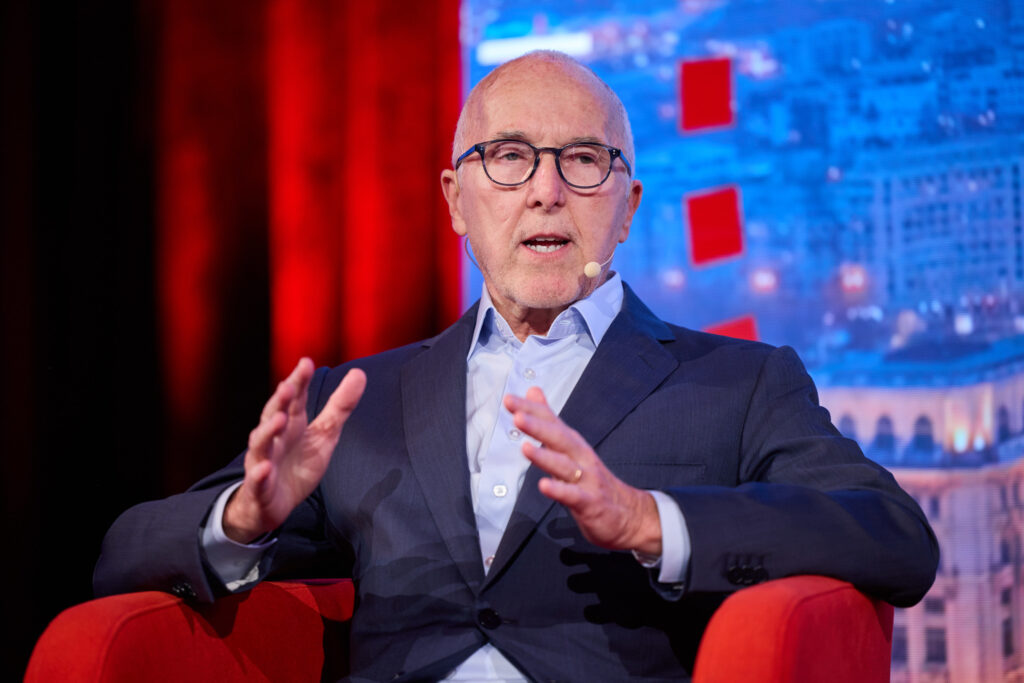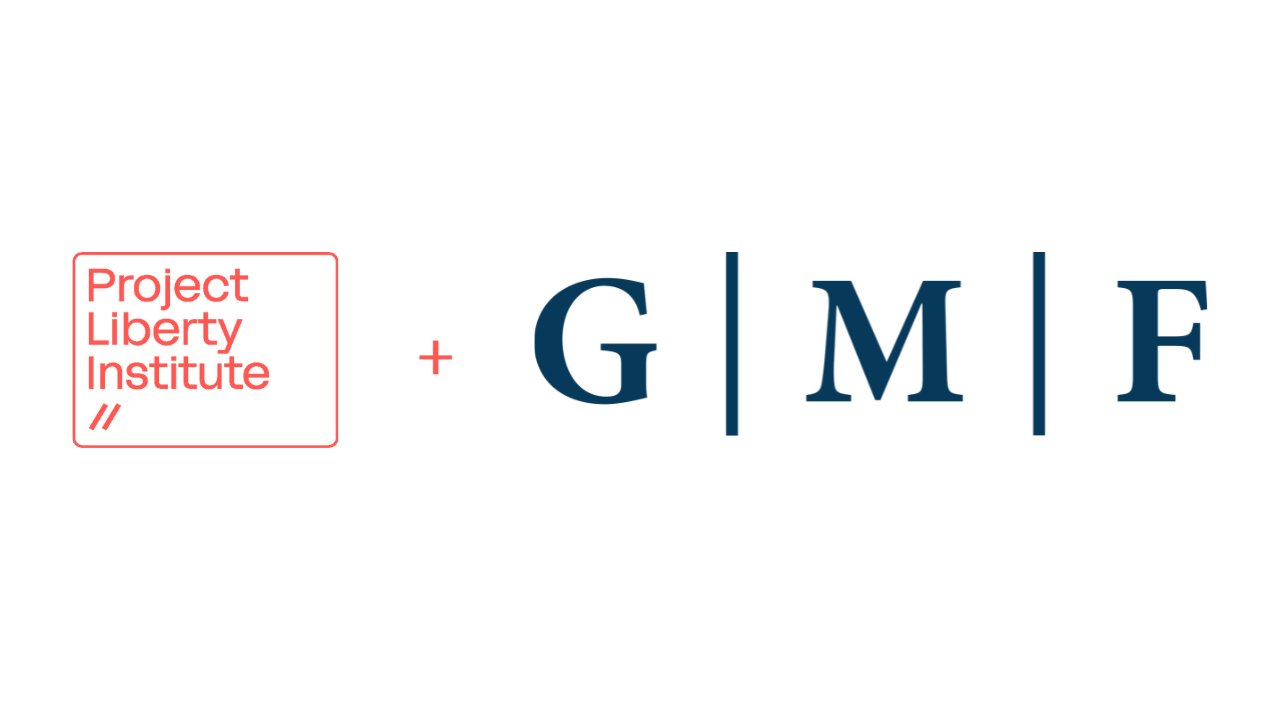Speaking at the annual Brussels Forum, the German Marshall Fund of the United States’ (GMFUS) flagship event, Project Liberty Founder Frank McCourt, announced a new strategic partnership between the Project Liberty Institute and GMFUS, in collaboration with Mercator Stiftung, to support the next phase of the GMFUS Transatlantic Tech Exchange (TTX). This groundbreaking initiative seeks to strengthen collaboration between US and European policymakers and innovators addressing the future of technology governance in the age of data and AI.
As AI and digital infrastructure evolve rapidly, policymakers on both sides of the Atlantic face the complex task of balancing innovation with the protection of democratic values. This partnership advances transatlantic dialogue based on collaboration, shared learning, and questions on how to scale technologies in the public interest.

Frank McCourt emphasized the initiative’s importance: “At Project Liberty, we believe the next generation of the internet must be grounded in, and in harmony with, democratic values, and human agency. That’s why I’m proud that Project Liberty Institute is partnering with the German Marshall Fund along with Stiftung Mercator to support the GMFUS Transatlantic Tech Exchange—bringing together European and US policymakers and innovators to address one of today’s defining challenges: governing emerging technologies in ways that truly serve people.”
I’m proud that Project Liberty Institute is partnering with the German Marshall Fund along with Stiftung Mercator to support the GMFUS Transatlantic Tech Exchange—bringing together European and US policymakers and innovators to address one of today’s defining challenges: governing emerging technologies in ways
Frank McCourt, Founder, Project Liberty
that truly serve people.
A partnership highlight is a 2025 study tour to Europe, designed to facilitate direct exchanges between US policymakers, innovation leaders, and their European counterparts.
Lindsay Gorman, Managing Director of the German Marshall Fund’s Technology Program, stated: “Bridging policy dialogue between US policymakers and European peers is essential as technology tensions and governance questions reach critical junctures. This exchange empowers legislators to learn from each other, seizing opportunities and tackling emerging challenges in AI and data through a shared commitment to democratic principles, transparency, and innovation that benefits the public.”
The tour will focus on advancing public-interest approaches to AI and data governance, enhancing mutual understanding of policy models, and fostering greater transatlantic alignment.
Sheila Warren, CEO of Project Liberty Institute, expressed enthusiasm for the exchange’s potential impact: “Together with Stiftung Mercator, we are pleased to support this timely GMFUS initiative connecting policymakers and innovators across the Atlantic. Deeper Transatlantic collaboration and shared insights will enable us to design a data and AI economy that empowers people across more borders and sectors.”
Building on GMFUS’s inaugural exchange of Members of the European Parliament to the US, the TTX expands the conversation by bringing influential US policymakers and innovators to Europe. Paul Fehlinger, Director of Policy, Governance Innovation & Impact at Project Liberty Institute, underscored the urgency: “Technology is advancing at an unprecedented pace. Policymakers and innovators alike grapple with how to best govern the data and AI stack—from infrastructure to applications—in ways that accelerate progress while safeguarding fundamental rights. This moment demands transatlantic learning and stakeholder cooperation.”
Together, GMFUS, Stiftung Mercator, and Project Liberty Institute are committed to building durable bridges for open dialogue and collaborative policy development. Jeb Bell, Head of Insights at Project Liberty Institute, concluded: “At this critical juncture for digital governance, innovation policy must be grounded in evidence. This exchange is about learning from what works on both sides of the Atlantic and creating shared pathways to responsible, scalable solutions.”
Watch the video of the panel: Tech Wars—Who Will Win the Innovation Race?
